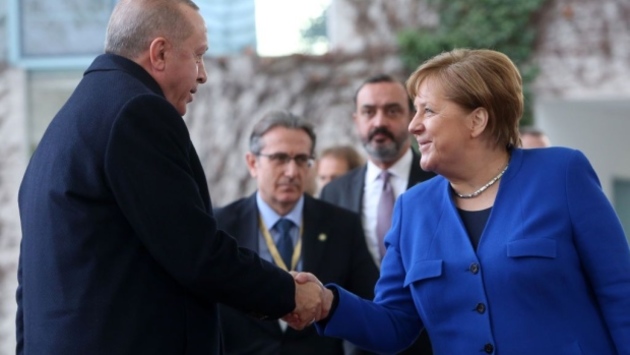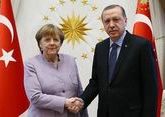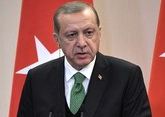When Turkey and Greece last came to the brink of war, phone calls from President Bill Clinton to the leaders of both countries persuaded them to pull back. Now, as the two NATO allies again face off in the eastern Mediterranean, President Donald Trump’s desultory efforts to defuse the tensions are having no effect, Bloomberg writes in the article How Merkel Can Calm the Conflict Between Greece and Turkey.
After the intervention of German Chancellor Angela Merkel, both sides stood down — though only briefly. Hostilities have since resumed in earnest. Ankara and Athens are dialing up their belligerent rhetoric, and two of their warships recently collided during a confrontation. The stakes are higher than in 1996. Then, the clash was primarily over a cluster of islets in the Aegean Sea. Now, territorial claims are being invoked to support assertions of exclusive drilling rights over large deposits of natural gas under the eastern Mediterranean.
Outright military conflict is possible. With the U.S. lacking both the will and the influence with allies it would need to intervene effectively, Merkel needs to redouble her efforts.
Other countries with energy interests in those waters — especially Cyprus, Egypt, and Israel — also harbor grievances against Ankara, and are siding with Greece. French President Emmanuel Macron has called for economic sanctions against Turkey and recently dispatched a frigate and jets to the area. The Trump administration, having failed to resolve the crisis, might have made it worse by choosing this moment to ease a longstanding arms embargo on Cyprus.
President Recep Tayyip Erdogan is unlikely to be cowed. He will also be buoyed by the recent natural gas find off Turkey’s other shore, in the Black Sea.Even so, Erdogan does listen to Merkel. At her request, he paused Turkish exploration activities near Cyprus last month, resuming only when Greece announced a maritime-border agreement with Egypt, akin to one between Turkey and Libya last year. The renewed reciprocal brinkmanship has made Merkel’s task harder, but not impossible. Having shown that she can get the principal protagonists in the confrontation to pause, she should strive to mediate a permanent resolution. It helps that Germany is a major trading partner of the interested parties, and that Berlin currently holds the European Union’s rotating presidency.
Bringing Turkey into the East Mediterranean Gas Forum would be a good place to start. This was created by the littoral states to establish a regional gas market and an export hub to Europe. Turkey was left out because the forum includes Cyprus, which Ankara doesn’t recognize. Membership would allow Turkey a share of the resources and access to mechanisms for resolving disputes over where it can drill.
Getting Turkey and Cyprus to agree on this would be a challenge for any mediator, to be sure. Greece and Merkel’s other European partners, vexed by Erdogan’s intransigence on other issues, may balk. She could remind them that access to the eastern Mediterranean’s natural gas reserves offers Europe its best alternative to energy dependence on Russia — while telling Turkey and Cyprus that Europe is the logical market for the gas and that the shortest route is through both countries. That seems like a basis for talks. If Merkel steps up, she might make the difference.










